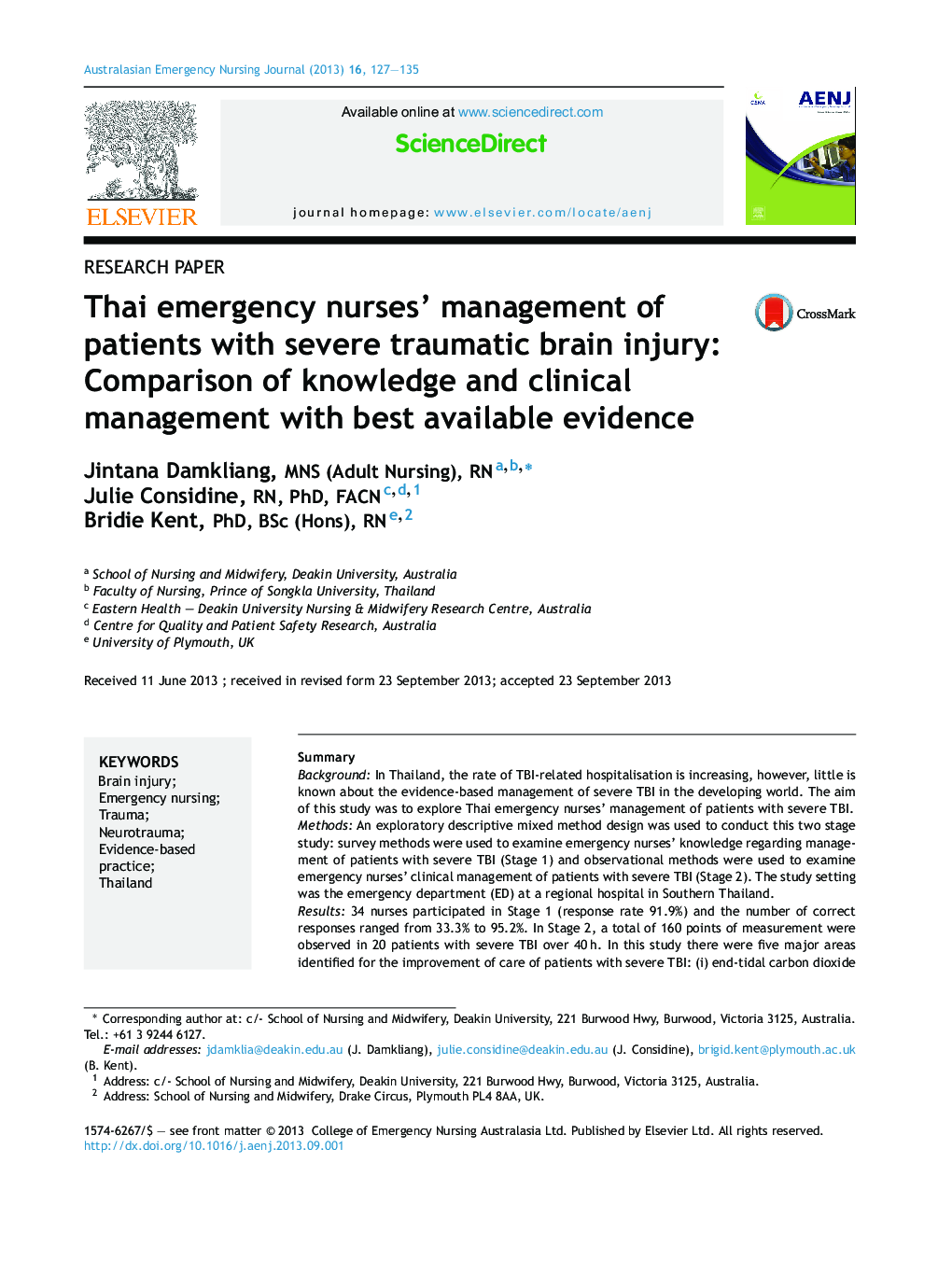| Article ID | Journal | Published Year | Pages | File Type |
|---|---|---|---|---|
| 2605928 | Australasian Emergency Nursing Journal | 2013 | 9 Pages |
SummaryBackgroundIn Thailand, the rate of TBI-related hospitalisation is increasing, however, little is known about the evidence-based management of severe TBI in the developing world. The aim of this study was to explore Thai emergency nurses’ management of patients with severe TBI.MethodsAn exploratory descriptive mixed method design was used to conduct this two stage study: survey methods were used to examine emergency nurses’ knowledge regarding management of patients with severe TBI (Stage 1) and observational methods were used to examine emergency nurses’ clinical management of patients with severe TBI (Stage 2). The study setting was the emergency department (ED) at a regional hospital in Southern Thailand.Results34 nurses participated in Stage 1 (response rate 91.9%) and the number of correct responses ranged from 33.3% to 95.2%. In Stage 2, a total of 160 points of measurement were observed in 20 patients with severe TBI over 40 h. In this study there were five major areas identified for the improvement of care of patients with severe TBI: (i) end-tidal carbon dioxide (ETCO2) monitoring and targets; (ii) use of analgesia and sedation; (iii) patient positioning; (iv) frequency of nursing assessment; and (v) dose of Mannitol diuretic.ConclusionsThere is variation in Thai nurses’ knowledge and care practices for patients with severe TBI. To increase consistency of evidence-based TBI care in the Thai context, a knowledge translation intervention that is ecologically valid, appropriate to the Thai healthcare context and acceptable to the multidisciplinary care team is needed.
